Ever since President Ronald Reagan signed an edict making the third Monday in January a Federal Holiday commemorating the birth of Dr. Martin Luther King, the event has, in some ways, been diluted into trite recitations that do precious little to highlight the importance of King's life—and untimely death at the age of 39.
These “highlights,” if you will, contain excerpts from King’s speeches or Civil Rights Movement songs, like “We Shall Overcome,” without any context to the tragedy that played out in America from 1955, when King first rose to prominence, until 1968, when he breathed his last breath in Memphis, Tennessee.
As a lover of history, I do believe that what I called “trite” recitations above have their place; yes, it is important to note that King graduated from Atlanta's Booker T. Washngton High School at the age of 15, from Morehouse College at the age of 19, and finished with a master's in theology from Crozer Theological Seminary and a Ph.D in philosophy and religion from Boston University before the age of 26.
Yes, it is important to note that he became pastor of Dexter Avenue Baptist Church while finishing his dissertation at Boston University during the very same year that he was tapped to lead the Montgomery Bus Boycott after Rosa Parks was arrested for violating the city’s Jim Crow seating laws.
Yes, it is important to note that Dr. King founded the Southern Christian Leadership Conference in 1957 along with other civil rights giants like Rev. Ralph Abernathy and Rev. C.K. Steele, and that over the next 11 years, the organization would be at the vanguard of leading peaceful non-violent resistance in the face of extremely violent resistance from the Ku Klux Klan and other assorted racists who viciously attacked them in Albany, Georgia, St. Augustine, Florida, Birmingham, Alabama and yes, even in Chicago, Illinois.
Yes, it is important to note that King was the keynote speaker among a "Who's Who" of American figures at the March on Washington in August of 1963, and how his most famous words from that speech were ad-libbed after the legendary singer Mahalia Jackson repeatedly shouted to him to "tell them about the dream" that he had spoken to her and other audiences in the week's prior to the event.
Yes, we would be wise to remember this day that King's efforts led to the passage of the crucial Civil Rights Act of 1964, and the Voting Rights Act of 1965, two measures that theoretically provided the legal end of nearly 100 years of legal discrimination against Blacks in America.
But what often goes unmentioned on MLK Day, but not here at the Hobbservation Point, is that it wasn't just the KKK minions that were real menaces to King's life—but the United States government as well!
Lest we forget the truth that men like President John F. Kennedy and Attorney General Robert F. Kennedy claimed to be King's ally to his face, all the while considering him to be a communist due to his professional associations with lawyer Stanley Levinson and civil rights leader Bayard Rustin; King stubbornly refused President Kennedy’s demand that he break all ties with Attorney Levinson, in particular, during a chat in the White House's Rose Garden in June of 1963.
Lest we forget that both President and Attorney General Kennedy authorized FBI Director J. Edgar Hoover's surreptitious surveillance efforts that were designed to dilute, discredit, and ultimately destroy King's power (after he won the Nobel Peace Prize in 1964).
Lest we forget that it was the FBI that tapped King's phones at home and his offices in Atlanta; planted informants in his inner circle; taped alleged sexual trysts at hotels across America and forwarded the tapes to Mrs. Coretta Scott King to foment marital discord; and when that didn't work, sent a letter threatening to expose his private business to the public—while encouraging King to commit suicide to avoid the scandal.
Lest we forget that alleged King assassin James Earl Ray claimed until his dying day in 1999 that a man named “Raul” and the FBI played a part in framing him for the shots that rang out and shattered Dr. King's jaw on April 4, 1968.
So yes, it is important to remember that "Dr. King tried to love somebody," as he mentioned in his famous I've Been to the Mountaintop speech that's often recited by those alive today who would have despised him had they lived back in the 1950's and 60's.
And yet, it is far more important to remember that the very nation Dr. King tried to love—and the very racists he extended love to—hated him and because of their hatred, his parents lost a son, his wife lost a husband, his children lost a father, his Morehouse and Alpha Phi Alpha families lost a Brother, and we all lost a towering figure in world history at the age of 39.

Ergo, as we spend this day remembering Dr. King's life, let us further remember why it was cut far too short…
Thank you for subscribing to the Hobbservation Point—have a wonderful MLK Holiday




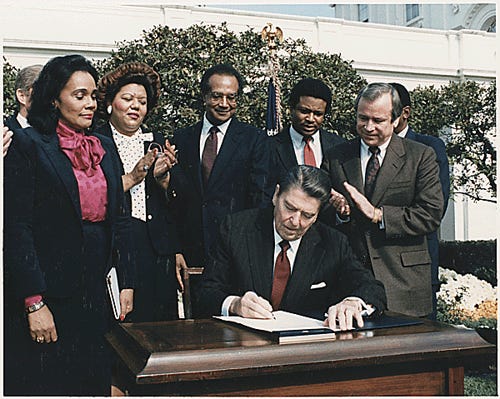
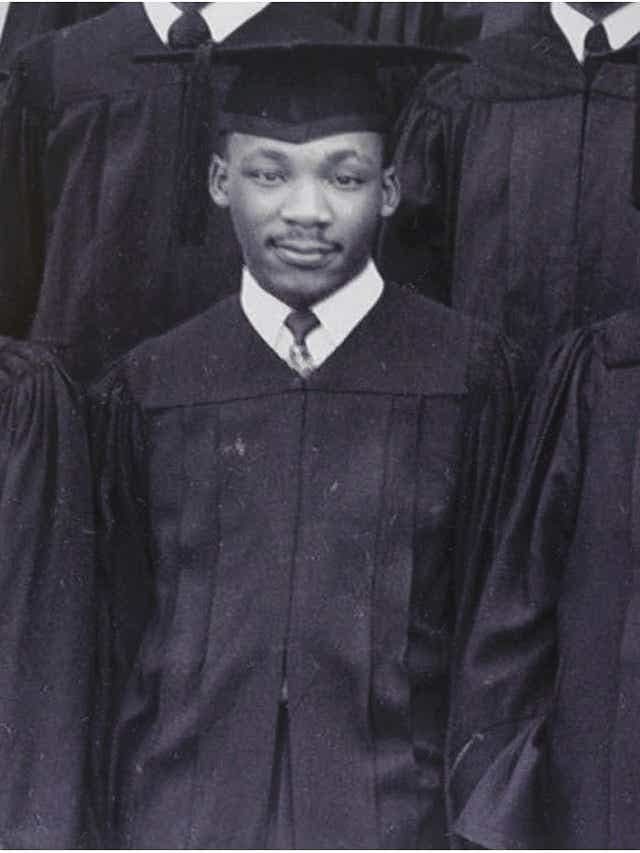
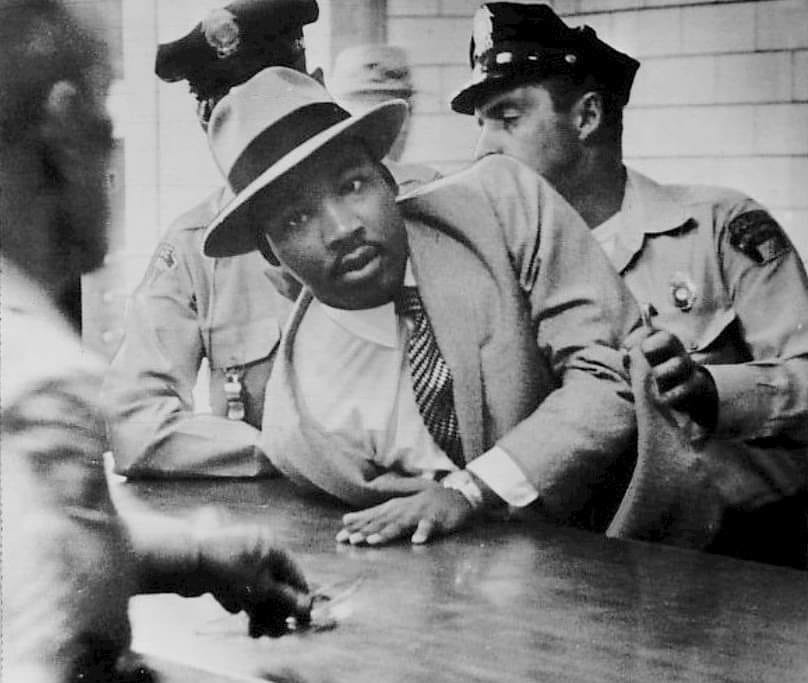




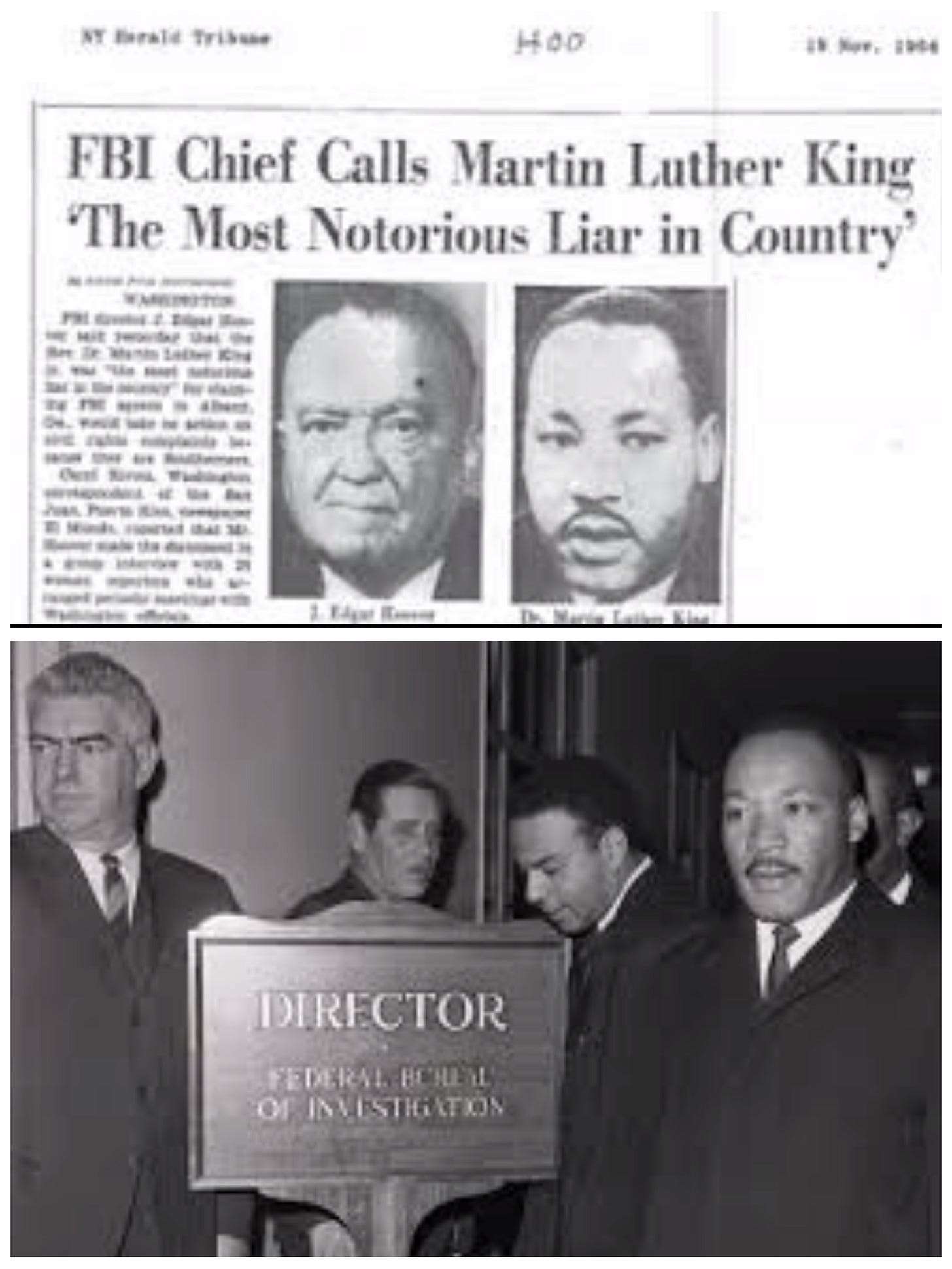

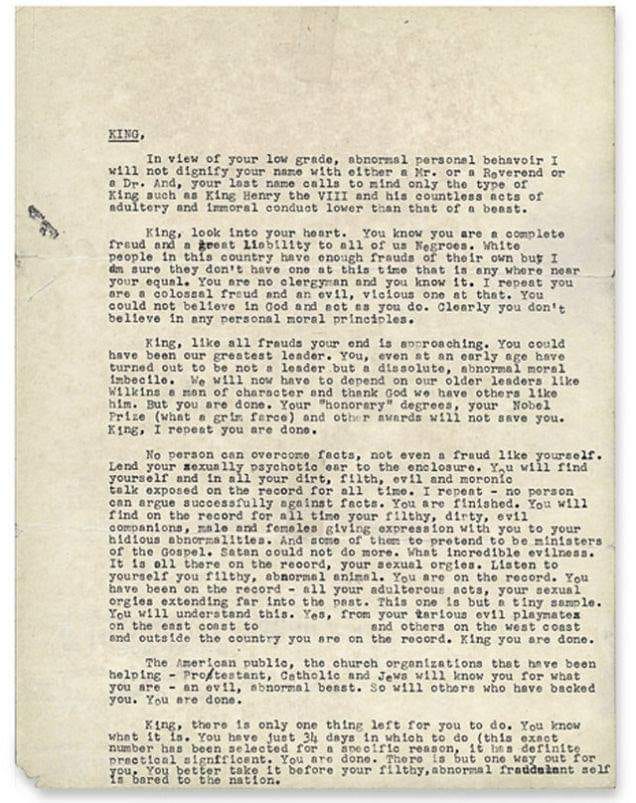

Awesome piece!
Thank you🙏🏽
That letter was chilling. I had never seen that. Thank you for more context and facts about the Man.